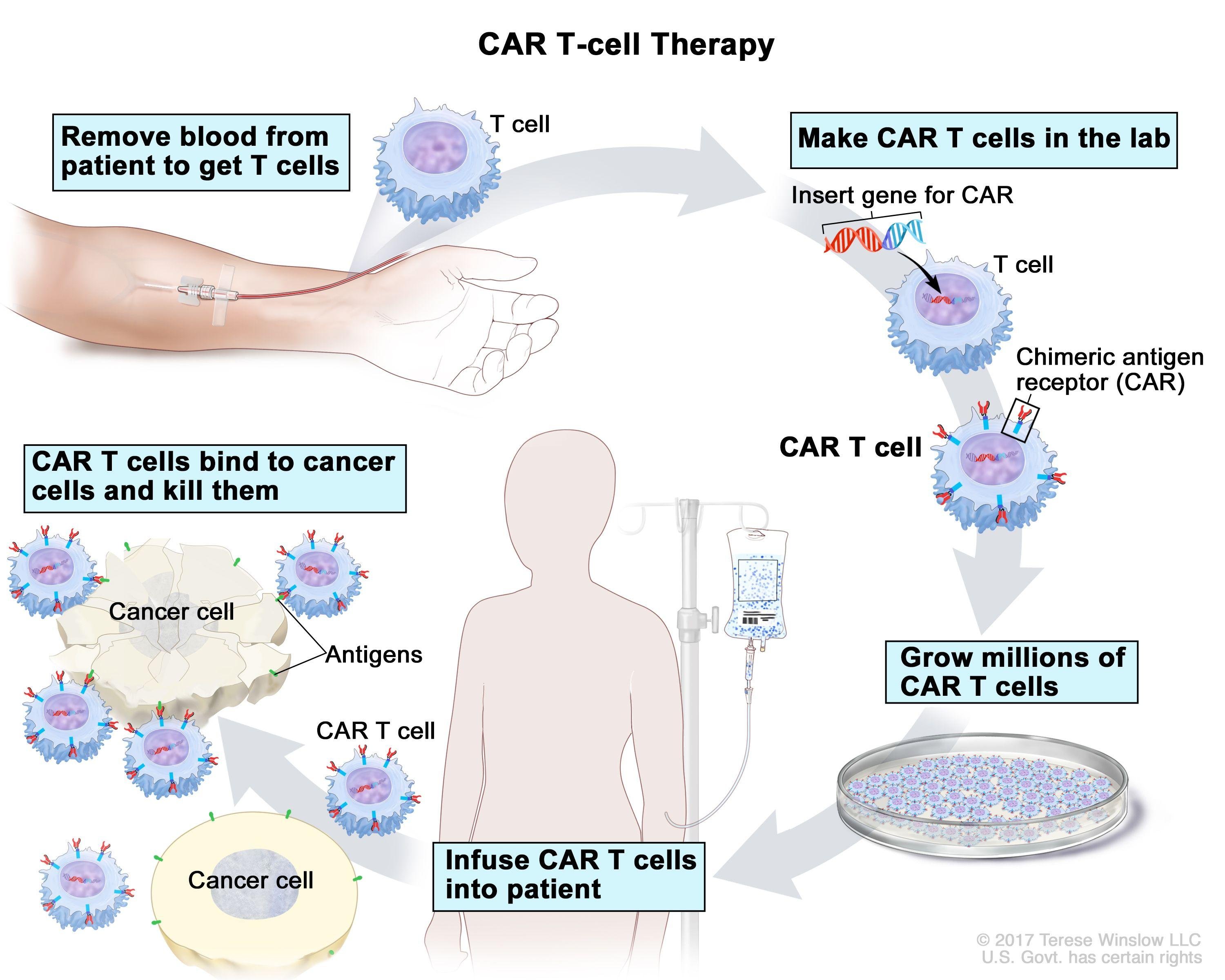Exploring The Risks and Benefits of CAR T-Cell Therapy in Cancer Treatment

CAR T-cell therapy has been a ground-breaking treatment for some cancers in recent years. This customized treatment gives patients suffering from diseases like leukemia, lymphoma, and other blood cancers new hope by using the body's immune system to target and destroy cancer cells. CAR T-cell therapy, like any medical treatments, has advantages and disadvantages that patients and healthcare professionals need to weigh.
The Benefits of CAR T-Cell Therapy
-
High Success Rates in Blood Cancers: B-cell acute lymphoblastic leukemia (ALL), non-Hodgkin lymphoma, and chronic lymphocytic leukemia (CLL) are among the blood cancers for which CAR T-cell therapy has completely changed the course of treatment. Real-world data and clinical trials have shown impressive remission rates, with many patients achieving total remission or long-term disease control.
-
Personalized Care: The ability to customize CAR T-cell treatment is one of its biggest benefits. Compared to conventional chemotherapy or radiation, the therapy can be more successful and focused because it is customized to the patient's genetic composition utilizing their own immune cells.
-
Possibility of Long-Term Remission: CAR T-cell therapy has occasionally proven successful in achieving long-term remission, which enables patients to live without having to worry about their cancer returning on a regular basis. For many who had run out of other therapy choices and were given a bad prognosis, this has given them new hope.
-
Less Toxicity Than Chemotherapy: Compared to traditional chemotherapy, which damages both healthy and malignant cells, CAR T-cell treatment is generally less toxic since it makes use of the body's own immune system. For some people, this can result in a higher quality of life with fewer long-term negative effects.
The Risks of CAR T-Cell Therapy
-
Cytokine Release Syndrome (CRS): Cytokine release syndrome (CRS) is one of the worst hazards associated with CAR T-cell treatment. This happens when the altered T-cells flood the bloodstream with cytokines, which are signaling molecules of the immune system. In severe situations, the excessive inflammatory response can result in organ damage, low blood pressure, fever, and breathing difficulties. Although CRS can be fatal, it is curable with early detection.
-
Neurological Toxicities: Confusion, convulsions, and trouble speaking are neurological adverse symptoms that some individuals encounter. Although these problems are frequently transient, they can be dangerous and need careful observation. Although the precise source of these neurological toxicities is still being investigated, it is thought that the quick activation of T-cells is a contributing factor.
-
Infection Risk: As an immunotherapy, CAR T-cell therapy has the potential to momentarily impair immune function, increasing susceptibility to infections. Antibiotics or antifungal drugs can be necessary for patients to control these risks while undergoing treatment.
-
Cost and Availability: The cost of CAR T-cell therapy is high; it frequently exceeds hundreds of thousands of dollars. Not all patients have access to this state-of-the-art option because of the cost and restricted availability at specialist treatment facilities. Additionally, the treatment might not be suitable for some cancer kinds, which would restrict its use.
-
Refractory Cases: Not every patient responds to treatment, despite the immense promise of CAR T-cell therapy. After an initial time of remission, the disease may recur in certain situations, or the modified T-cells may not be able to effectively target the cancer. To find out why certain patients do not benefit from the therapy and how to increase success rates, more research is required.
Conclusion:
A significant advancement in cancer treatment, CAR T-cell therapy gives patients with previously incurable tumors fresh hope. But it's crucial to balance the substantial advantages including long-term remission and individualized treatment against the possible hazards, such serious side effects like brain damage and cytokine release syndrome.
To find out if CAR T-cell therapy is the best option for a patient based on their particular medical history, cancer kind, and general health, it is imperative that they speak closely with their oncologist. It is anticipated that the therapy's efficacy and safety would increase with more study and development, making it an essential tool in the fight against cancer.
Research URL :-
https://penposh.com/blogs/318094/Exploring-The-Risks-and-Benefits-of-CAR-T-Cell-Therapy
- Art
- Causes
- Crafts
- Dance
- Drinks
- Film
- Fitness
- Food
- Παιχνίδια
- Gardening
- Health
- Κεντρική Σελίδα
- Literature
- Music
- Networking
- άλλο
- Party
- Religion
- Shopping
- Sports
- Theater
- Wellness


